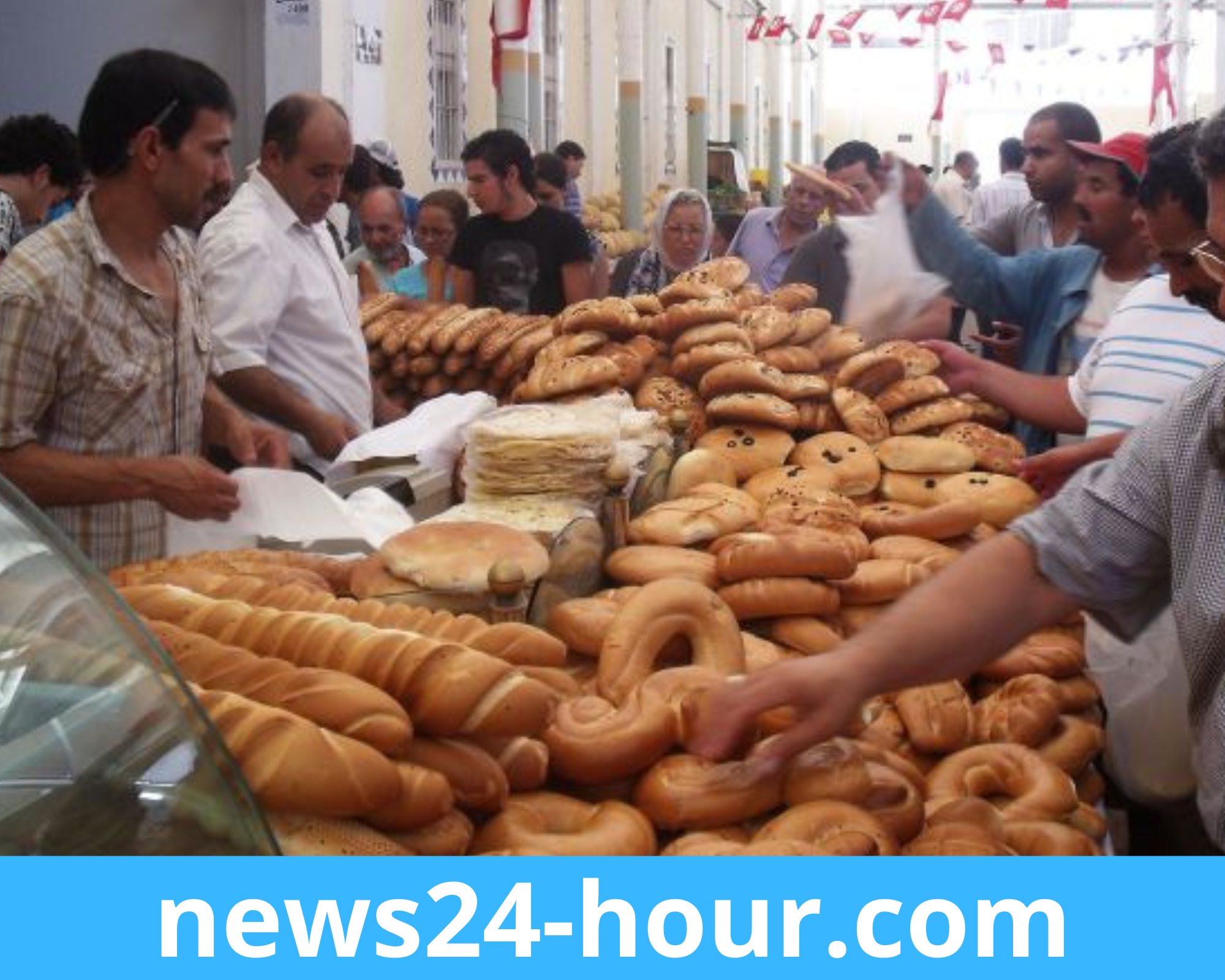TUNIS – Due to the severe shortage of some essentials, such as bread, Tunisians are currently facing difficult daily challenges. Although Tunisian President Kais Saied emphasized during his meeting with the Minister of Agriculture that the crisis would end in the next few hours, the crisis has not yet been resolved.
Due to the severe semolina and farina scarcity, which has caused a decrease in the manufacturing of bread of all varieties, it has become difficult for residents to purchase bread, which serves as their daily nutrition.
On the other hand, most bakeries consistently have large lineups in front of them and close their doors early.
Samir al-Qamati, a city resident, travels to the central market in search of bread, but the crowds of people in front of some bread vendors and the scarcity of bread forced him to leave empty-handed. The central market is located in the center of the city, where street vendors sell their wares on the sidewalks.
Samir al-Qamati, a city resident, travels to the central market in search of bread, passing by the sidewalks where street vendors sell their wares, but he leaves empty-handed due to the crowding of people in front of some vendors and the scarcity of bread.
Al-Qamati stated to Al-Jazeera Net that although officials promised to end the bread crisis and gave assurances that imported basic supplies would soon arrive in Tunisian ports, the most fundamental supplies, including semolina, farina, sugar, vegetable oil, and even medicine, are still lacking in the market.
Last Monday, Tunisian President Kais Saied demanded a resolution to the bread crisis within the next few hours during a visit to the Ministry of Agriculture, which is in charge of overseeing the supply of wheat through the Grain Bureau. He accused “criminal networks of working to starve the people within the framework of arrangements to inflame the situation.”
Saeed urged officials in the Grain Diwan (the government agency in charge of controlling domestic supplies of hard and soft wheat) to accept responsibility for the situation, promising to hold the administration accountable and rid the government of any personnel serving the interests of political parties with the intention of starving and mistreating the populace.

